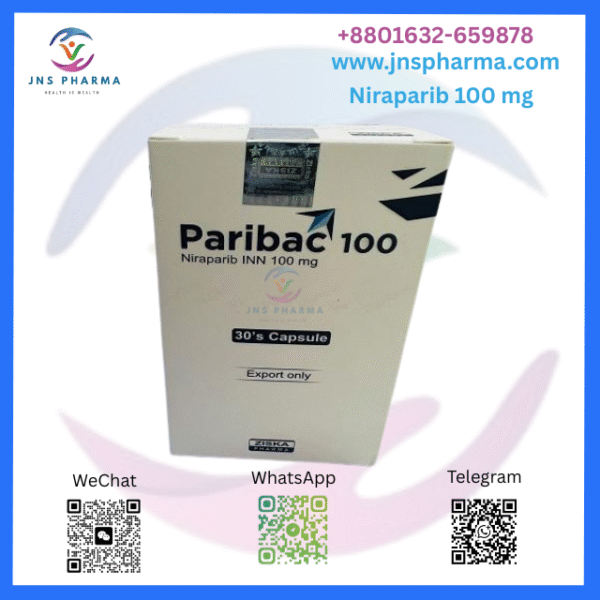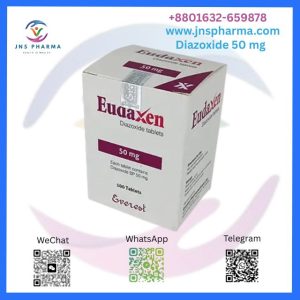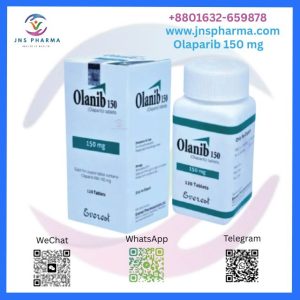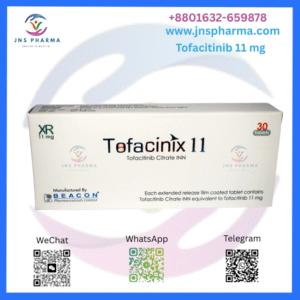Don't miss our holiday offer - up to 50% OFF!
Paribac 100 mg (Niraparib)
Niraparib, an oral poly (ADP-ribose) polymerase (PARP) agent used to treat some ovarian, fallopian tube, and peritoneal malignancies, is the active ingredient in Paribac 100 mg. It’s a cancer- targeted remedy that widely functions by inhibiting cancer cell DNA form processes and converting death in cancer cells while trying to minimize damage on normal cells.
Niraparib is particularly helpful in the conservation remedy of cancer that has responded to platinum- grounded chemotherapy, anyhow of the excrescence’s BRCA mutation status. By exploiting vulnerabilities in cancer cell DNA form mechanisms, Paribac 100 mg can decelerate complaint progression and ameliorate patient issues.
Mechanism of Action
PARP enzymes play a pivotal part in repairing single- beachfront DNA breaks. When PARP function is inhibited by Niraparib, the breaks persist and the rate of DNA damage during cell replication is increased. In cancer cells — especially those with homologous recombination form insufficiency, similar as BRCA- shifted cells — this accumulation of damage proves murderous. This phenomenon is known as synthetic lethality.
Paribac 100 mg, thus, targets the cancer cells with defective DNA form medium and spares most normal cells while reducing some of thenon-specific toxin associated with standard chemotherapy.
Indications
Paribac 100 mg (Niraparib) may be indicated in the ensuing conditions
conservation Treatment
Adults with advanced epithelial ovarian, fallopian tube, or primary peritoneal cancer who have either fully or partially responded to first-line platinum-based chemotherapy.
For patients who have primary peritoneal, fallopian tube, or intermittent epithelial ovarian cancer and who are responding fully or partially to platinum-based chemotherapy.
BRCA Mutation andNon-BRCA Mutation Cases
Effective in both BRCA- shifted andnon-BRCA-mutated cancers, broadening its suggestion.
Dosage and Administration
Standard Cure: Three 100 mg capsules of Paribac taken orally once daily is the recommended dosage.
Dose Adjustment Cases with lower body weight or some blood count values can be started at lower boluses( e.g., 200 mg daily) to minimize the threat of side effects.
Administration
It can be taken with or without food.
It is necessary to swallow the capsules whole, without chewing or crushing them.
The remedy is generally continued until complaint worsening or intolerable toxin develops.
Side Effects
As with all cancer treatments, Paribac 100 mg may have side effects. The most frequent are
Hematologic venom
Anemia (red blood cell insufficiency)
Thrombocytopenia (platelet insufficiency)
Neutropenia (neutrophil insufficiency)
Gastrointestinal effects
Nausea
Vomiting
Constipation
Loss of appetite
Other Frequent responses
Fatigue
Insomnia
Headache
Hypertension (high blood pressure)
Dyspnea (breathing difficulty)
Serious and occasional adverse events may include myelodysplastic pattern (MDS) or acute myeloid leukemia (AML), which need close monitoring of cases.
Precautions and Warnings
Hematologic Monitoring
Complete Blood Counts need to be checked daily for the first month, also monthly for the coming 11 months, and also as demanded.
Blood Pressure Monitoring
Regular checks are demanded, especially in the first two months of remedy since hypertension is an established threat factor.
Gestation and Breastfeeding
They’re contraindicate during gestation due to implicit fetal detriment.
Breastfeeding needs to be discontinue during remedy and at least 1 month after the last dose.
Liver and order Function
Cure adaptation may be demand in cases with renal or hepatic impairment.
Drug Interactions
The medicine is generally metabolize by carboxylesterases and minimally by cytochrome P450 enzymes, and therefore major medicine relations are limited compare to some other oralanti-cancer medicines. Use caution when administered concomitantly with antihypertensive specifics or blood count- altering medicines. Always get medical advice before using it in conjunction with other treatments.
Benefits of Paribac 100 mg (Niraparib)
Targeted remedy – Attacks vulnerabilities in cancer cell DNA form, leading to targeted payoff of the cancer cells.
Broad connection – Effective in bothnon-BRCA-mutated and BRCA- shifted ovarian cancers.
Oral Convenience – Take at home in capsule format, minimizing sanitarium visits on a regular base.
Dragged Absolution – In trials, shown to mainly protract progression-free survival in conservation rules.
Clinical Evidence
Niraparib blessing was sustain by significant trials similar as the ENGOT- OV16/ NOVA and PRIMA trials
NOVA Trial Demonstrated robust enhancement in progression-free survival in BRCA- shifted andnon-BRCA-mutated intermittent ovarian cancer cases.
PRIMA Trial Demonstrated striking benefits with first-line conservation treatment, particularly in cases at high threat of rush.
These trials further cemented Niraparib as a protean and effective conservation remedy in ovarian cancer operation.
Storage and Handling
Store at room temperature down from violent heat, moisture, and direct sun.
Keep out of reach of children.
Handle capsules with care; avoid crushing or opening.
Conclusion
A key component of the treatment for ovarian and related cancers is Paribac 100 mg (Niraparib). exercising the eventuality of PARP inhibition, it offers targeted action that can protract absolution and survival time in cases. Being orally administer, it’s easy to use, and its prove advantage irrespective of BRCA mutation statuses positions it as a must- have option in conservation remedy.
Nonetheless, as with all anticancer treatments, remedy must be nearly follow by an oncology specialist, with careful monitoring for toxin and personalized treatment adaptation to optimize safety and efficacity.







Reviews
There are no reviews yet.